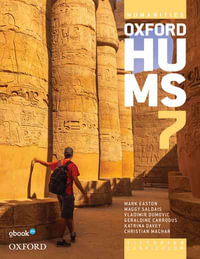THE MEDIEVAL WORLDGeneral Editor: David BatesThe later Mediterranean world was dominated by half a dozen powerful empires. In the east, as well as the last guttering remnants of Byzantine greatness, those of Venice and Genoa have received much scholarly attention, as have their Muslim counterparts, the Ottomans and the Mamluk empire in Egypt and Syria. Much less familiar, though of far more immediate concern to the history of western Europe, is the centuries-long dynastic struggle of two princely houses - the kings of Aragon-Catalonia and the Kings of Naples - for hegemony in the central and western Mediterranean.This conflict determined the fate of most of Mediterranean Spain, Majorca and the Balearics; parts of southern France; Sardinia, Naples and other parts of Italy; and even Albania, Greece and the distant kingdom of Hungary - and its perennial axis and flashpoint was Sicily. The struggle between the kings of Aragon and the Angevin kings of Naples helped shape the commercial as well as the political map of the Mediterranean, and its impact was still being felt during the Italian wars of the sixteenth century.The Western Medierranean Kingdoms examines this two-hundred year rivalry within the wider context of of the rise to power of the Aragonese-Catalan commonwealth after 1200, and the emergence, division and decline of the once powerful kingdom of Sicily.
Perhaps the most familiar episode of the story is the revolt of the Sicilian Vespers in 1282, and the bitter wars that it generated; but the disputed claims to Sicily and southern Italy convulsed the politics of popes, emperors, kings and the Italian cities for generations - and culminated in the French invasion of Italy in 1494-95, the causes of which Dr Abulafia attributes to these Sicilian claims, dating right back to the thirteenth century. The book is built around biographical sketches of some of the most powerful rulers of the medieval world, from Frederick II of Sicily to Ferdinand II of Aragon, and of their defeated rivals. It not only brings together important aspects of the history of both Spain and Italy into a new synthesis, but also considers them from unfamiliar but rewarding viewpoints: Italy is seen from the south upwards, and Spain from the perspective of the Catalan lands, a vibrant centre of trade and industry and the base from which the kings of Aragon set out on dozens of conquering expeditions into the territory of Christians and Muslims alike.
The book also draws attention to the fate of the Muslims and Jews who fell under Aragonese or Sicilian rule - for these lands were a meeting place for the diverse cultures and religions of the Mediterranean world.The Western Mediterranean Kingdoms is the first attempt to present a coherent account of the interrelationship of Spain and Italy (and indeed France) in the later Middle Ages. Neglected as it has been, this is nevertheless one of the great formative themes of the period, and David Abulafia does it full justice in his pioneering overview.
























